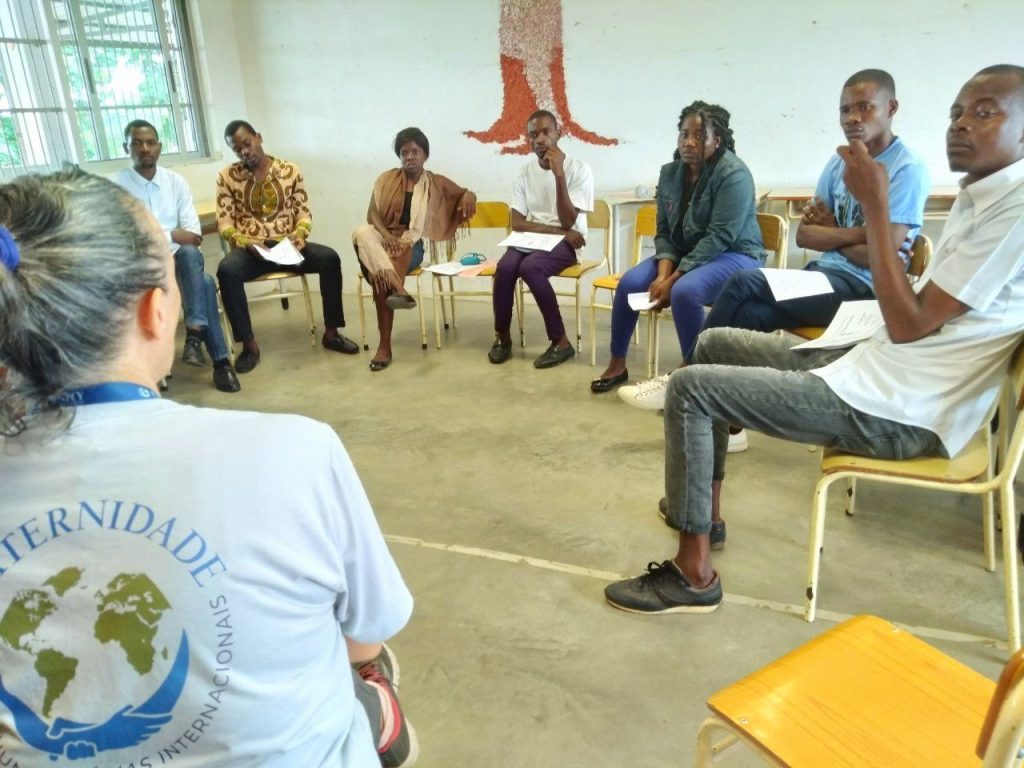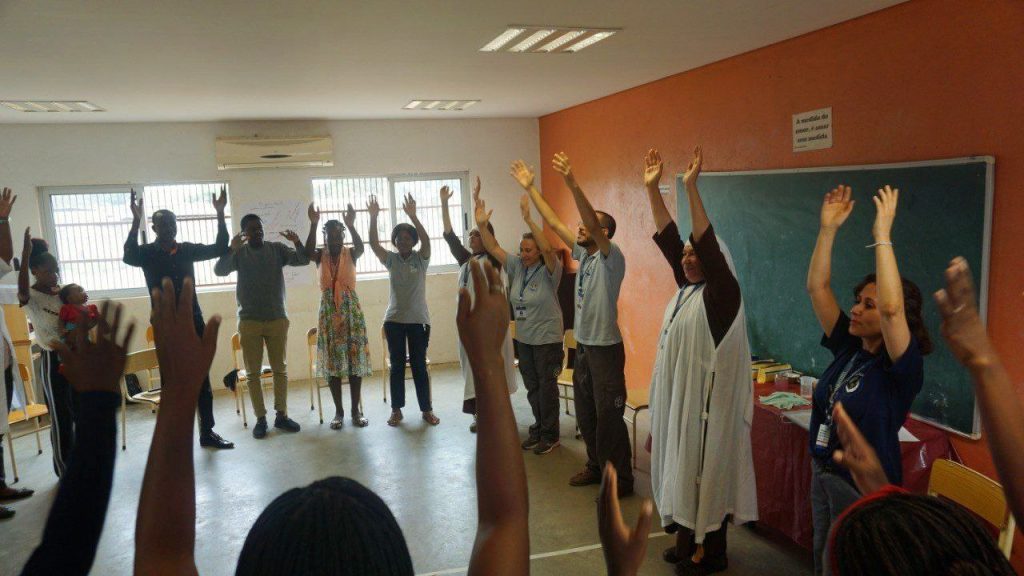The Fraternity – International Humanitarian Missions (FIHM) held three training meetings on education aimed at overcoming trauma, in Luanda, Angola, on November 15th and 21st and December 8th. 21 teachers and administrative professionals from Escola Esperança (Hope School) and educators from Obra de Caridade da Criança Santa Isabel (OCSI) participated.

In order to understand the context these participants work with, exercises were carried out through which they could discuss and reflect on the facilities and challenges faced in their daily work and how they manage stress situations in their lives.
The director and teacher from Escola Esperança, Ana Rodrigues de Andrade, explains that “the training contributed to updating information, as we work with children from different backgrounds, with various difficulties and who present different behaviors from one another. With the meetings, we were able to acquire new tools to understand and work with these children. The methods and games will help us a lot in what we will transmit to them.”


Through playful experiences and collaborative games, used to balance emotions and feelings, the training participants were able to experience pedagogical strategies that help children and young people who go through traumatic situations. Among them, poetry, the storytelling, dynamics to improve communication, attention, concentration and watercolor workshops.
“There are many things I learned from the training, but the transfer of knowledge helped us above all to work on empathy and the ability to put ourselves in the children’s shoes. It showed us the importance of understanding,” highlighted Ingracia Neto Amoroso, a student of Social Work and also a teacher at Escola Esperança.

Processing emotions
According to the precepts of education aimed at overcoming trauma, “dealing with traumatic childhood experiences essentially depends on the child’s success in experiencing and processing their own emotions” and for this to occur, explains Anderson Santiago, the Fraternity’s – Humanitarian Missions (FIHM) Emergency Education manager, it is necessary that teachers, educators, volunteers and professionals who work in situations of crises, emergencies and humanitarian responses also work on expressing their own emotions and, thus, can offer the necessary support to those who experienced trauma.

People who go through traumatic situations can find it difficult to express their experiences and emotions in words, so it is important to find alternative means of creative expression. By writing journals, letters and stories, a child can process and deal with traumatic experiences, emotions, memories and thoughts. Painting, drawing and music can help you to access, model or even dissolve muted feelings.
“It is never possible to start an activity with the children without motivation, without understanding the needs of each one of them, which is why it is so important to learn new activities,” reports the teacher Sabino Fernandes, who adds: “during the training we were able to exchange ideas, share our difficulties as teachers. The state of learning is never a standstill, we must learn new things every day.”






